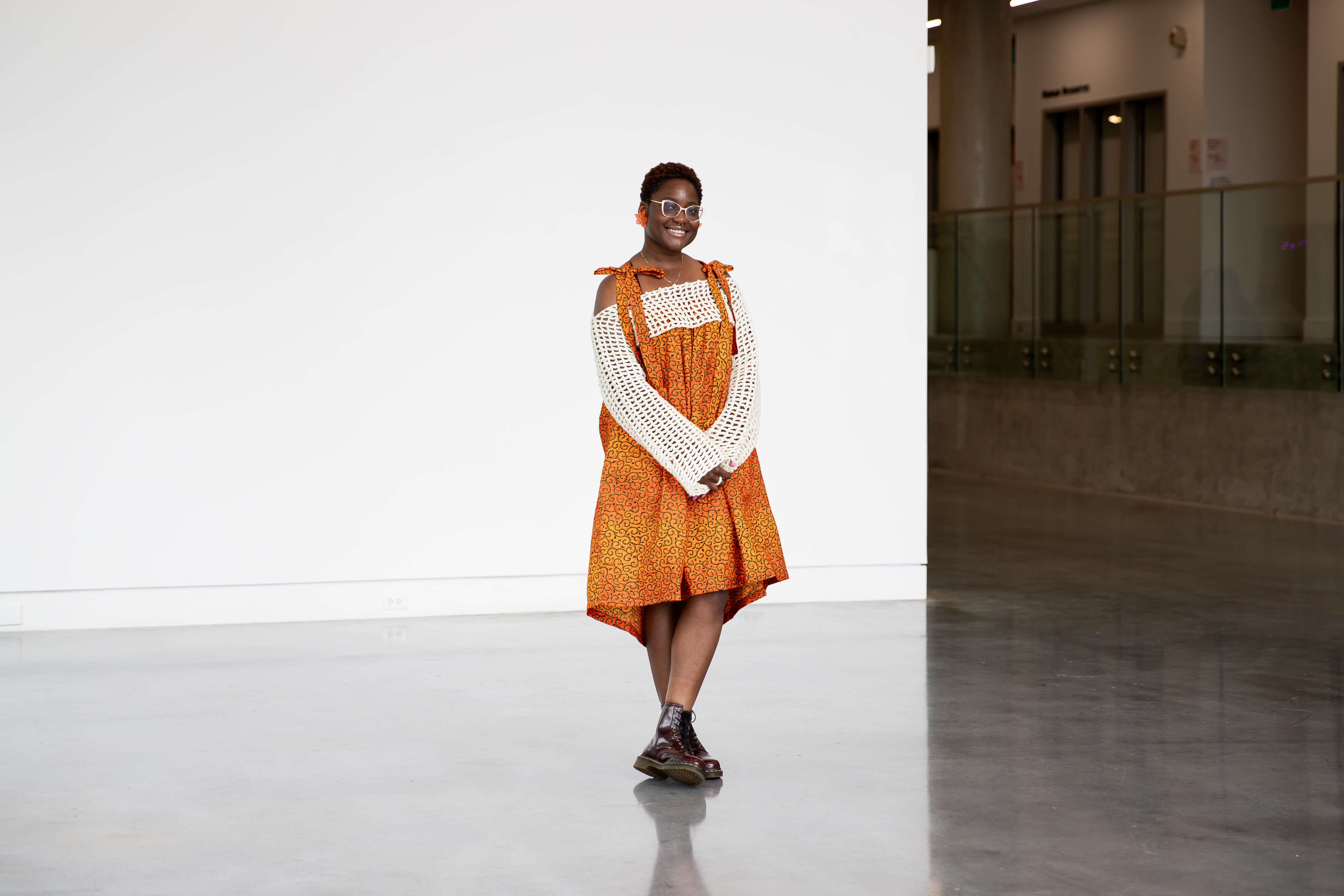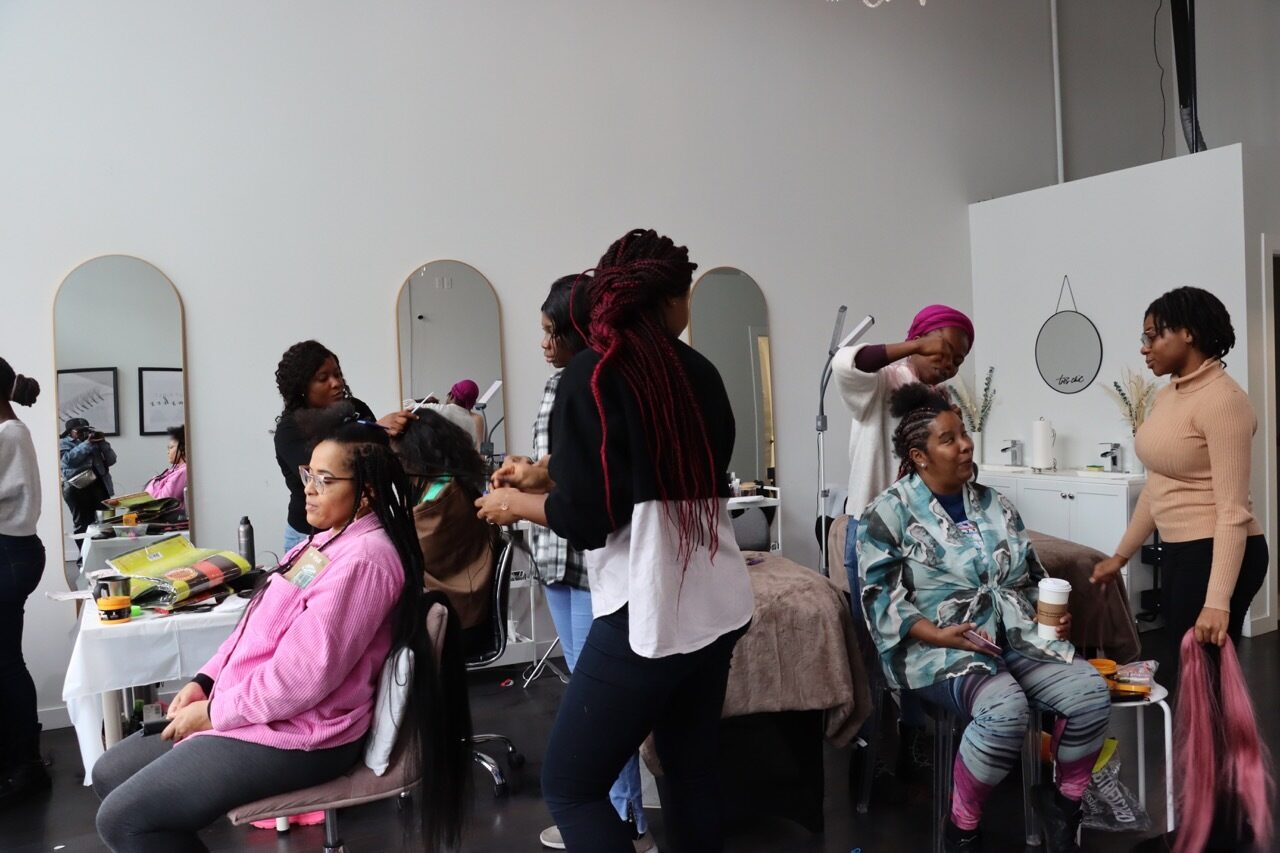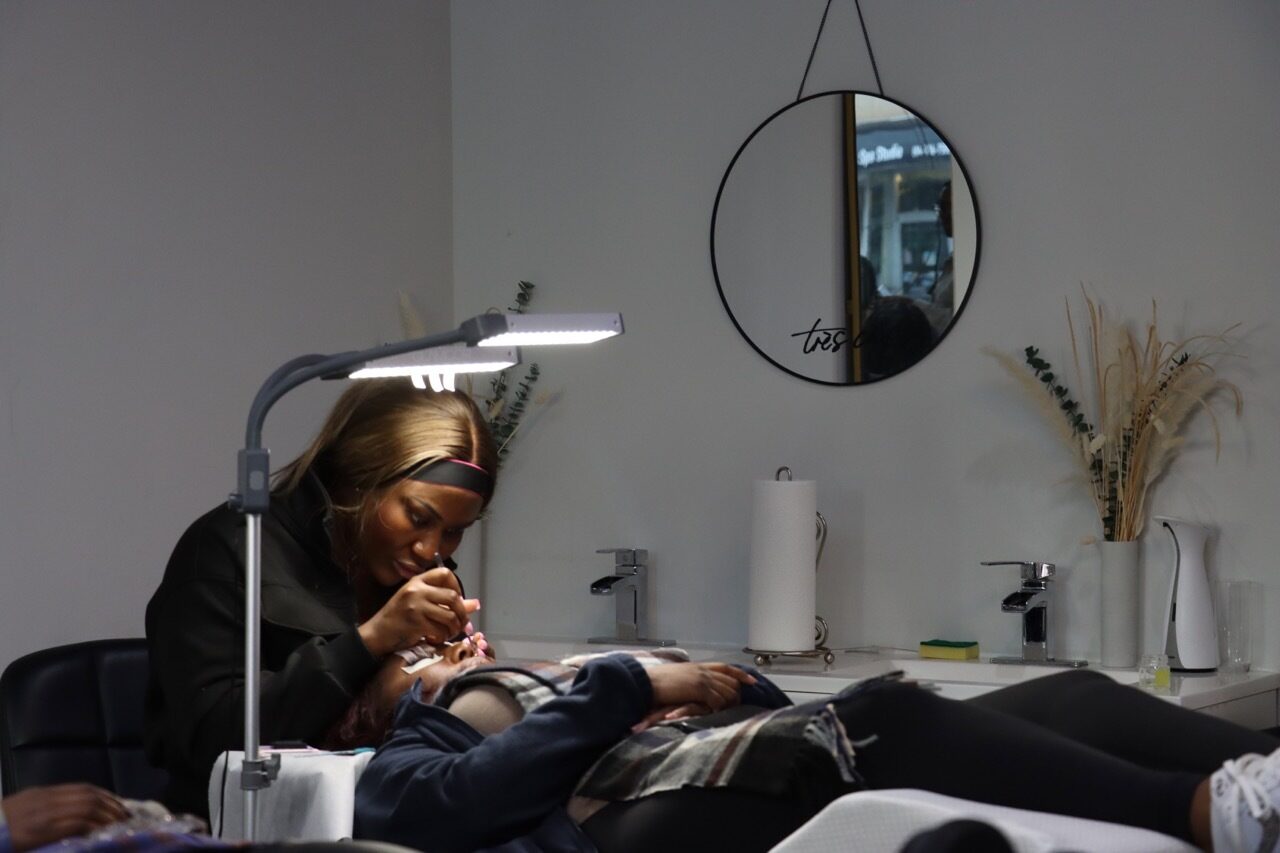Nimi Martins Receives ECU Alumni Association Award for Community Engagement

Designer Nimi Martins’ award-winning project, The Manicure Mixer, created a cultural space for community engagement amongst Black women. (Photo by Perrin Grauer)
Posted on
The designer and recent Emily Carr University of Art + Design (ECU) grad was recognized for her project The Manicure Mixer.
Nimi Martins (MDES 2024) is the recipient of the 2024 Emily Carr University Alumni Association (ECUAA) award for Community Engagement. The designer won for her project, The Manicure Mixer, which functions as a microcosm of her thesis’ larger ambitions.
A product designer with four years of experience, Nimi Martins had been ingrained with the notion of designing for the “average user.” This approach aims to meet the demands of the broadest possible demographic.
While attending ECU’s exploratory Master of Design program, Nimi realized that designing this way—while inclusive on paper—leaves diverse experiences out of the equation. In designing for everyone, “you end up designing for nobody,” she says.
This newfound perspective proved freeing for Nimi’s thought process, lifting self-imposed design restrictions and allowing unconventional ideas to emerge. Still, she found herself struggling to let go of the idea that design ultimately needed to result in a product or application. “If not,” she had wondered, “what exactly did I do?”

From Nimi Martins’ The Manicure Mixer. (Photo courtesy Nimi Martins)
With Nimi’s capstone project, The Manicure Mixer: Design Lessons from a Black Beauty Salon, the creation of a cultural space and its use by community members was the design. The ‘product’ was community engagement itself: the camaraderie and support that flows unobstructed in a safe, curated space for Black women.
Nimi’s experience relocating from Nigeria to Vancouver informed her initial concept. In reflecting on this experience, she recalls the sense of isolation she felt upon discovering the immediate daily realities of living in a city where Black people make up less than 1.5% of the population.
Black beauty salons, Nimi notes, are found on “every corner” in her home city of Lagos. Finding them absent in Vancouver, she realized she longed for these spaces, which hold the potential for meaningful social interaction in addition to nail, hair and lash services. They are women’s spaces—safe and comfortable spots in which to gather and speak freely.
Last summer, while working as a nail tech to help pay for school, Nimi had two Black clients show up in a row. “This was the first time I was in a room with two Black women at once since I moved to Vancouver,” she says. “I took the position of an observer, and I listened to them talk.”
Nimi noticed the women spoke with an ease and comfort around each other that they had not displayed previously. She recognized that the presence of other Black women in a women-centric setting could encourage community and connection. “In a space like this where everyone can be truly themselves, what happens?” she asked.

From Nimi Martins’ The Manicure Mixer. (Photo courtesy Nimi Martins)
This question led to the first iteration of The Manicure Mixer. Nimi posted a call on Facebook for five local Black women to receive free manicures and snacks in Nimi’s basement. The response was overwhelmingly positive, and Nimi found herself having to turn people away: more evidence of how much need there was for such spaces.
“All of the insights the women gave, the conversations that we had together, were what birthed the second version of The Manicure Mixer,” Nimi says. The second version hosted 18 black women, who received hair and lash service in addition to nails. There were nine service providers, and the project was done in collaboration with Black Women Connect Vancouver—a collective that strives to enact its titular mission.
This larger, more polished event featured complimentary services and swag bags for attendees, and took place at Tunti Beauty Bar on West Broadway. The day wrapped up with a sharing circle to address issues that had come up during the first mixer in Nimi’s home. She found a main concern among the women was isolation, and that the curated space had done a lot to solve that problem.
What’s next for the mixer? Nimi would like the event to become self-sufficient and function on its own, sustained by the community it fosters. An iteration is planned in collaboration with Black Women Connect Victoria, and Nimi also has dreams of including older generations in the Black community in future events.
Nimi is also excited to explore new opportunities that can further inspire her. The Master of Design program at ECU triggered a “huge shift” in the who she is as a designer and what avenues might open up as a result. She credits her fellow students, too, for broadening her notions of what can be possible through design.
“The people in the cohorts were the most important thing for me,” she says. “We broke down [each other’s] work together, we had all of these conversations.” Nimi now knows she wants to work with companies and entities interested in building community.
The ECUAA award, Nimi says, was validating: “I was very happy that my work was recognized for what I wanted it to be recognized for.”
See more of Nimi’s The Manicure Mixer via the 2024 online edition of The Show.